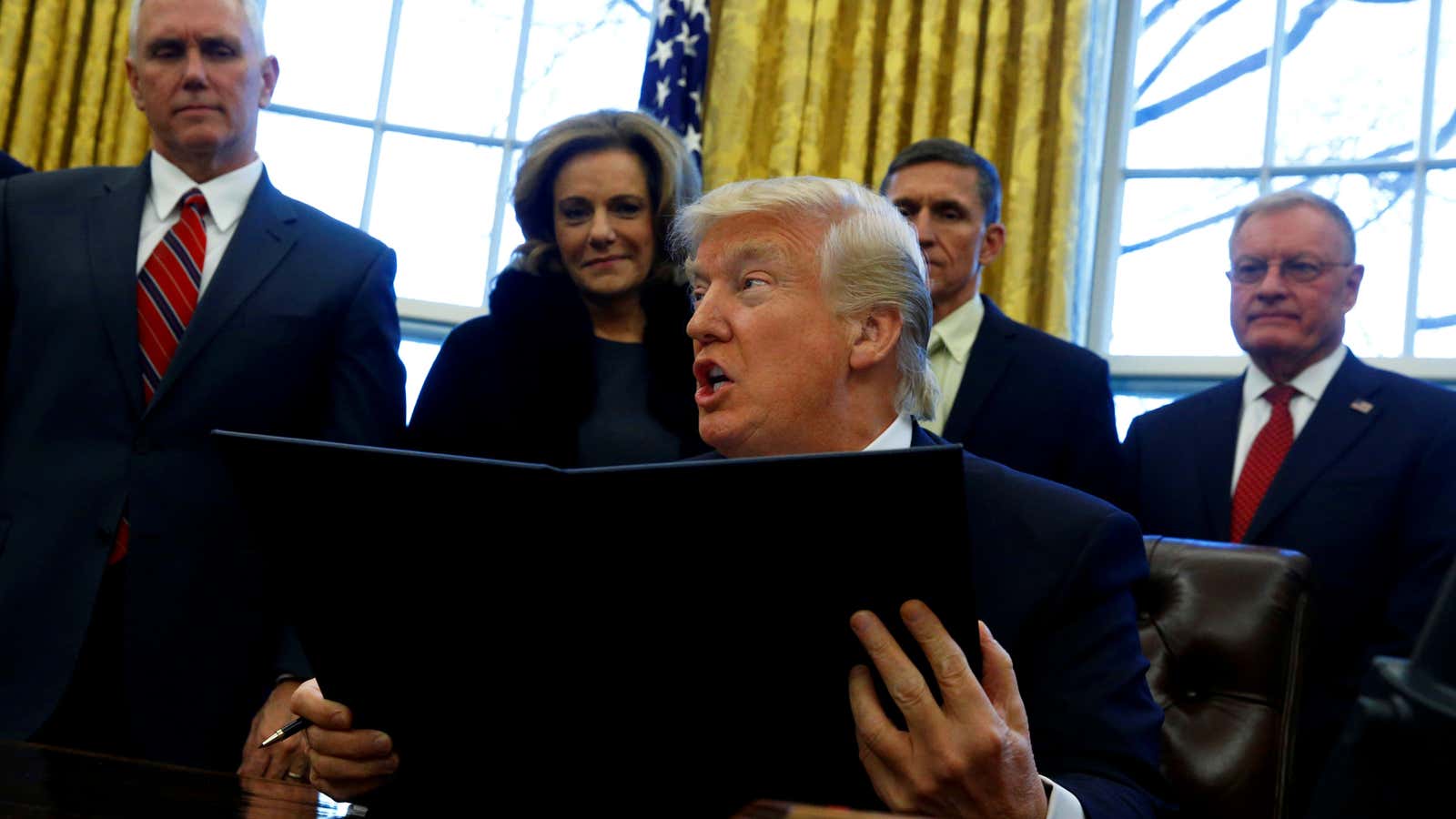When US president Donald Trump arrived in Washington, promising to “drain the swamp,” he signed an order barring lobbyists from working in his administration on matters they had been paid to influence in the previous two years. But he has hired numerous former lobbyists and industry lawyers to work on their old portfolios, and he now refuses to disclose the extent of the practice.
The White House’s surprising refusal was revealed by a New York Times records request. It uncovered a letter from White House official Mick Mulvaney refusing to share a list of ethics ban waivers for officials in the Trump administration with the Office of Government Ethics. Mulvaney suggested that the question was outside the office’s purview.
The director of the ethics agency, Walter Shaub, told the Times that he had “never seen anything like” the White House’s “extraordinary” reply. This is only the latest clash between the ethics office, created after the scandals of the Nixon administration, and president Trump. The relationship has been in the spotlight since a controversial tweet-storm in late November.
The restriction on former lobbyists’ work in government was first employed by president Barack Obama, and like Trump’s, the previous administration used waivers to exempt hires from the ban when it argued that the need for expertise outweighed the perception of an appointee’s conflict of interest. In those cases, however, the waivers were publicly disclosed to the OGE.
Trump appears to have stopped doing this (a statement released to the Times yesterday said the administration is seeking “further legal guidance”). So the public only knows some of the former influence peddlers now working in government and overseeing daily decisions that effect their former clients.
Timothy Clark, for example—formerly a lobbyist for the drug-makers trade association PhRMA—is the White House liaison to the Department of Health and Human Services. Michael Catanzaro, a former oil industry lobbyist, heads up the energy issues portfolio at the National Economic Council. Byron Anderson, a former lobbyist for the financial services industry, is at the Department of Labor, where he previously lobbied against a rule intended to protect retirement savers from excessive fees.
These examples are only known thanks to careful observation by journalists, but many more such lobbyists could be at work in government; only the Trump administration knows how many and where they are.
The White House’s refusal to disclose this information, along with the end of reporting on meetings between Trump staff and outside lobbyists at the White House, amounts to a reduction in government transparency that ethics experts say is troubling.
The ethics agency, which has limited power to compel the White House to produce such records, may now be forced into a legal confrontation with the president’s team, adding to the growing number of inquiries into corruption and ethics violations in the executive branch.
When Trump signed the order instituting the lobbying ban in January, he portrayed Obama’s version as less effective, citing “loopholes” and a shorter ban on post-government lobbying. But, without any insight into how, why, when, and to whom waivers in the rules are issued, Trump’s ban is all loophole.
